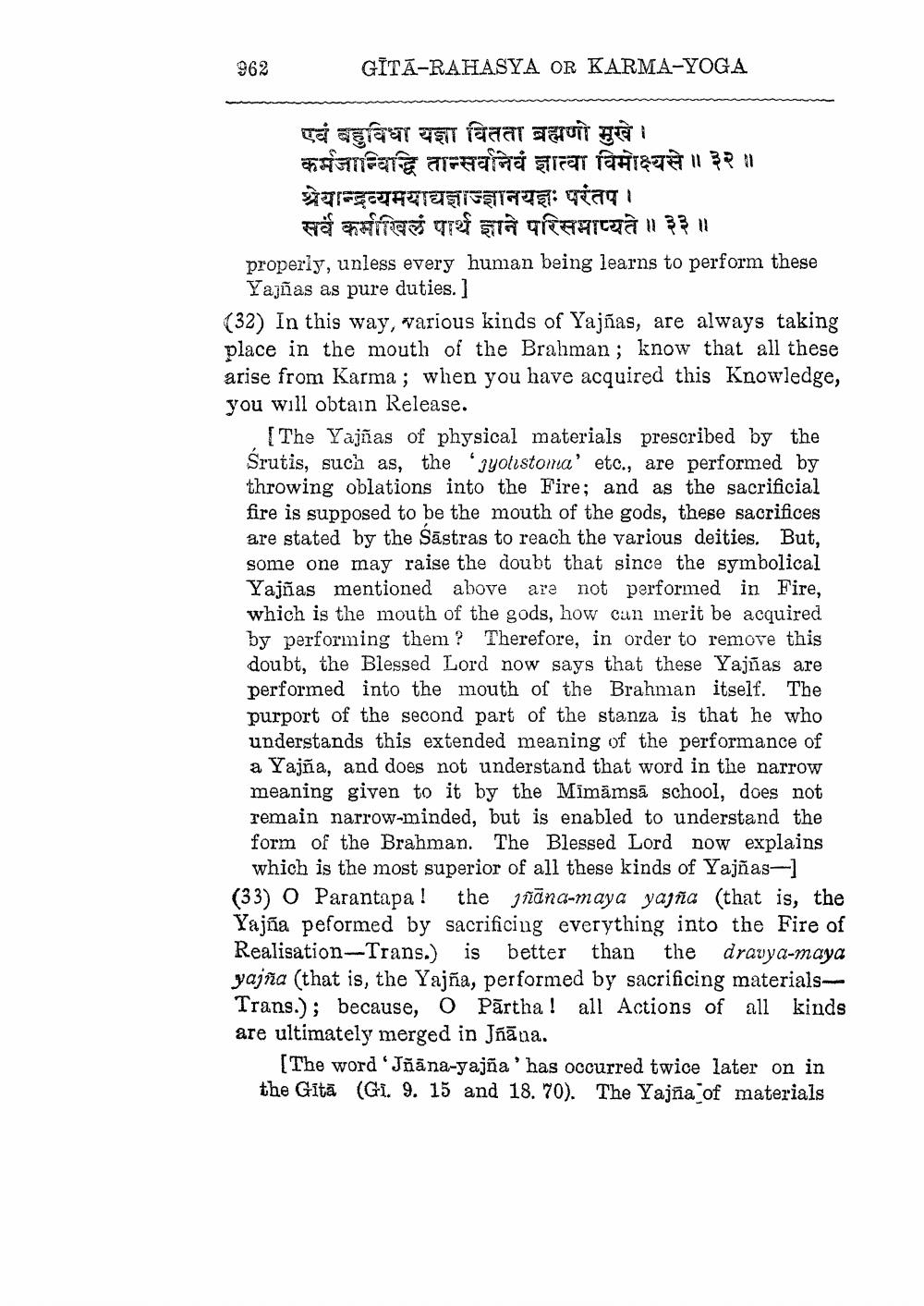________________
962
GĪTĀ-RAHASYA OR KARMA-YOGA
एवं बहुविधा यज्ञा वितता ब्रह्मणो मुखे। कर्मजान्विद्धि तान्सर्वानवं ज्ञात्वा विमोक्ष्यसे ॥३२॥
TECJATTEFICE 5: vinti
सर्व काखिलं पार्थ ज्ञाने परिसमाप्यते ॥ ३३ ॥ properly, unless every human being learns to perform these
Yajnas as pure duties.] (32) In this way, various kinds of Yajñas, are always taking place in the mouth of the Brahman; know that all these arise from Karma; when you have acquired this Knowledge, you will obtain Release.
[The Yajñas of physical materials prescribed by the Srutis, such as, the 'Jyotistoma' etc., are performed by throwing oblations into the Fire; and as the sacrificial fire is supposed to be the mouth of the gods, these sacrifices are stated by the Sāstras to reach the various deities. But, some one may raise the doubt that since the symbolical Yajñas mentioned above are not performed in Fire, which is the mouth of the gods, how can merit be acquired by performing them? Therefore, in order to remove this doubt, the Blessed Lord now says that these Yajñas are performed into the mouth of the Brahman itself. The purport of the second part of the stanza is that he who understands this extended meaning of the performance of a Yajña, and does not understand that word in the narrow meaning given to it by the Mīmāmsā school, does not remain narrow-minded, but is enabled to understand the form of the Brahman. The Blessed Lord now explains which is the most superior of all these kinds of Yajñas(33) O Parantapa! the jñāna-maya yajña (that is, the Yajña peformed by sacrificing everything into the Fire of Realisation-Trans.) is better than the drauya-maya yajña (that is, the Yajña, performed by sacrificing materialsTrans.); because, O Pārtha ! all Actions of all kinds are ultimately merged in Jñāna.
[The word 'Jñäna-yajña' has occurred twice later on in the Gitā (Gi. 9. 15 and 18. 70). The Yajña of materials




